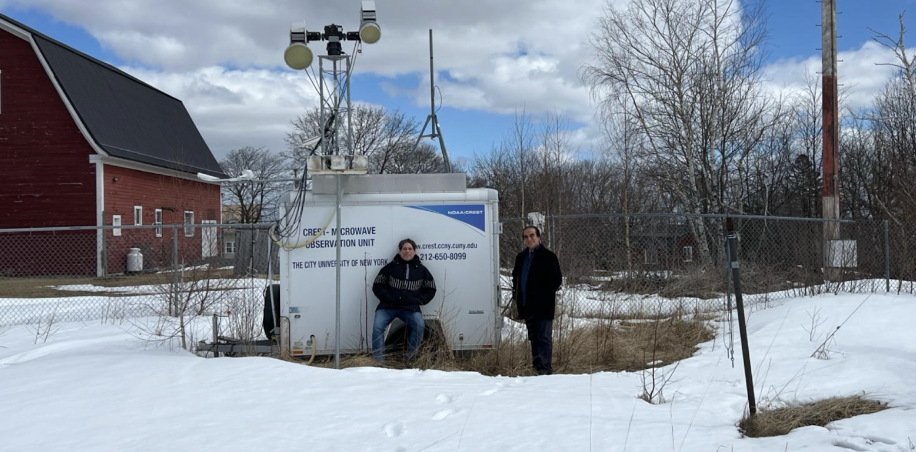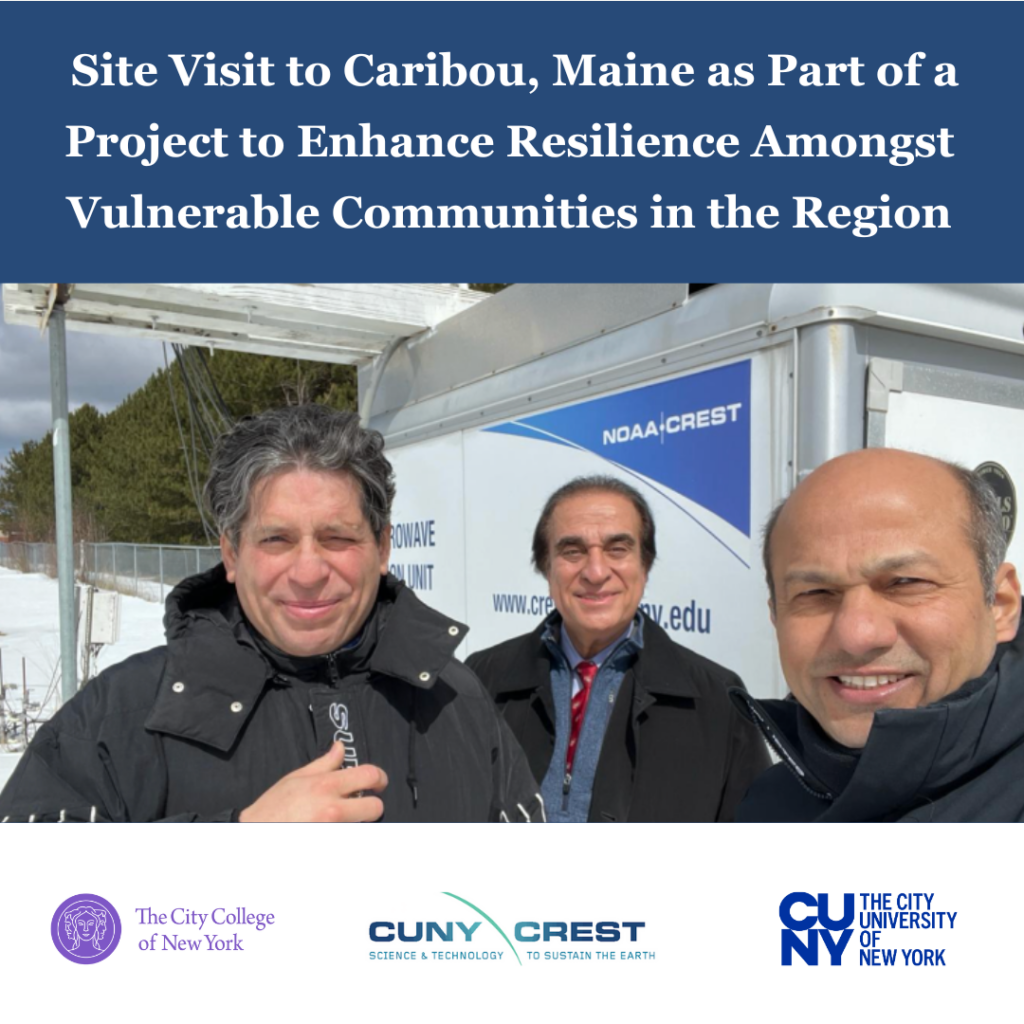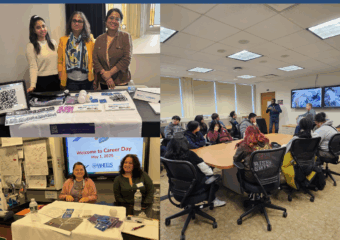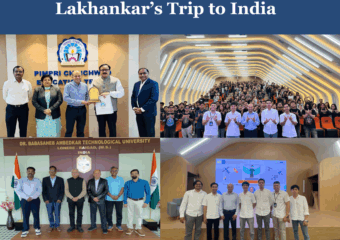Site Visit to Caribou, Maine as Part of a Project to Enhance Resilience Amongst Vulnerable Communities in the Region
CREST visited one of its sites in Caribou Maine as part of its project on Enhancing Resilience: National Weather Services for Environmental Justice in Vulnerable Communities from April 2 to 4, 2024. CREST Executive Director, Dr. Reza Khanbilvardi; CREST Research Scientist, Dr Tarendra Lakhankar, and The City University of New York Doctoral Student, The National Oceanic and Atmospheric Administration (NOAA) Center for Earth System Sciences and Remote Sensing Technologies II (CESSRST) Cohort 2 Fellow, and 2023 CUNY CREST HIRES Mentor, Richard Rivera participated in the visit. Other attendees included NWS Caribou Maine’s Louise Fode, Todd Foisy Aroostook County Emergency Management Agency’s Darren Woods, and Mi’kmaq Nation’s Shawn Newell.

The purpose of the trip was to enhance the collaboration between the National Weather Service (NWS) and various stakeholders in vulnerable communities, focusing on improving resilience through better weather services and emergency management. Commenting on the impact of such visits and his experience, Dr. Khanbilvardi said, “It was a great experience to understand how National Weather Service warnings are being communicated to and used by underserved communities in Northern Maine.”
Upon arrival, the CREST team mingled with the local community members to discuss their concerns and expectations from the NWS. During the trip, the team met with NOAA/NWS Forecasters at the WFO/NWS office in Caribou to discuss the current forecasting techniques and tools being used in the region and ways to tailor them in order to better serve the needs of the Mi’kmaq community. They also engaged in a session with Emergency Managers at the Aroostook County Emergency Management office to discuss ways to enhance communication and coordination mechanisms during severe weather events. Further, they visited the CUNY CREST Snow Site located within the NWS forecast office premises. The Snow Radiometer site provides real time critical data on snow parameters that helps gain insights into the ongoing snow research and implications on regional snowfall predictions and water resource management that are vital to the sustenance of the local Aroostook and local indigenous community. The visit wrapped up with meeting the Mi’kmaq community Council Members to participate in a comprehensive discussion on how the community can be better informed and prepared for weather-related threats, challenges and be weather-ready.
Reflecting on his experience, Richard said, “Our visit to Caribou, Maine offered a rich tapestry of insights into environmental dynamics and community resilience. Engaging in focused discussions with the Mi’kmaq community and collaborating with NOAA emergency response teams illuminated the interconnectedness of weather patterns and the importance of preparedness. Providing surveys to support NOAA’s mission underscored our commitment to empowering communities against potential flooding risks. I am excited to integrate these learnings into our future initiatives, fostering greater resilience and preparedness.”
The CREST team was able to identify specific needs of the Mi’kmaq community, including culturally appropriate communication strategies and training in weather preparedness. Dr. Lakhankar commented, “It helped enhance the understanding as we had in-person meetings which improved mutual understanding among the NWS forecasters, emergency managers, and the Mi’kmaq community leaders.” The visit was productive and informative. Agreements were made to continue dialogue and implement specific action points discussed during the meetings.




